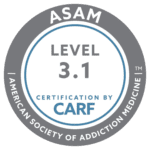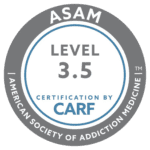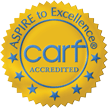Prescription medications are meant to help individuals manage their health conditions and alleviate symptoms. When used responsibly and under healthcare professionals’ guidance, these drugs have the potential to enhance one’s quality of life.
However, prescription abuse has become a growing concern, leading to severe consequences for individuals and society. According to the National Institute on Drug Abuse, approximately 52 million Americans have misused prescription medications at least once in their lifetime.
This prevalence underscores the importance of addressing the dangers of prescription abuse and implementing effective preventive measures.
In this article, we will dissect the dangers of prescription abuse, understand its causes and effects, and discuss prevention, treatment, and support options.
Understanding Prescription Abuse
Prescription abuse refers to the non-medical or excessive use of prescription drugs without a legitimate medical need. It involves taking medications beyond the prescribed dosage, using someone else’s prescription, or obtaining drugs illegally. Prescription drugs commonly abused include opioids, benzodiazepines, stimulants, and sedatives.
To effectively address the dangers of prescription abuse, you need to understand the elements that contribute to this behavior. Many individuals may start abusing prescription drugs due to a genuine medical need, while others may be driven by curiosity, peer pressure, or the desire to experience euphoria or escape from reality. Additionally, individuals with a history of substance abuse or mental health disorders are more susceptible to prescription drug addiction.
Can prescription abuse lead to addiction?
Yes, prescription abuse can lead to addiction. Regular misuse of prescription drugs can change brain chemistry and result in physical and psychological dependence. Encourage seeking professional help to address addiction and regain control over one’s life.
Are all prescription drugs addictive?
Not all prescription drugs are addictive. However, many commonly abused prescription drugs have a high potential for addiction and dependence. You must follow prescribed dosage instructions and consult healthcare professionals for guidance.
Can prescription abuse affect mental health?
Yes, prescription abuse can significantly impact mental health. Substance abuse, including prescription drugs, can worsen or trigger mental health disorders. Getting treatment for both substance abuse and mental health conditions simultaneously is vital.
Commonly Abused Prescription Drugs
Several types of prescription drugs are frequently abused. This includes the following:
- Opioids, such as oxycodone and hydrocodone, are potent pain relievers known for their high addictive potential. In 2019, approximately 10.1 million Americans misused prescription opioids, and opioid overdoses contributed to more than 70% of the nation’s drug overdose deaths.
- Benzodiazepines, including Xanax and Valium, are sedatives used to treat anxiety and sleep disorders.
- Stimulants like Adderall and Ritalin are often misused to enhance focus and concentration. Sedatives and sleep aids, such as Ambien, can also be abused for their sedative effects.

Factors Contributing to Prescription Abuse
Prescription misuse is a big problem, and there are many reasons why it happens. One primary reason is that it’s easy for people to acquire prescription drugs. Sometimes they get them through legal prescriptions, but other times they get them illegally. These drugs are like magnets for those looking to misuse or abuse them for fun.
Another reason is that people are not aware of the risks of misusing prescription drugs. They might not realize how addictive they can be or the dangers of improper use.
Sometimes even doctors overprescribe medications because they’re busy or patients demand it. This means more drugs are out there than necessary, making it easier for them to be misused.
But it’s not just about availability and knowledge.
Society’s attitude toward prescription drugs matters too. If people think it’s no big deal to use prescription drugs for reasons other than what they’re intended for, it becomes harder to tackle the issue. In some cultures, using prescription drugs to deal with stress or boost performance is seen as normal. This thinking only adds fuel to the fire.
How can I dispose of unused prescription medications safely?
To dispose of unused prescription medications safely, follow the guidelines provided by local authorities or consult a pharmacist. Do not throw medications down the toilet or throw them in the trash, as these methods can harm the environment or lead to accidental ingestion by others.
Prescription Abuse Symptoms
Recognizing the signs and symptoms of prescription abuse is crucial for early intervention and support. Common indicators include:
- changes in behavior
- mood swings
- secretive behavior regarding medication use
- frequent requests for prescription refills
- engaging in doctor shopping or illegal activities to obtain drugs
Physical signs may also be present, such as:
- pinpoint pupils
- slurred speech
- unsteady stride
Effects and Dangers of Prescription Abuse
Prescription abuse can have severe physical, psychological, and social consequences. The effects vary depending on the drug abused.
Short-term effects include:
- drowsiness
- confusion
- impaired judgment
- slowed breathing
Long-term abuse can lead to:
- addiction
- organ damage
- cognitive impairment
- increased risk of overdose or death
The consequences of prescription misuse also extend beyond the individual and can have significant social and economic implications. Communities and societies bear the burden of healthcare costs associated with treating addiction, addressing overdoses, and managing related healthcare complications.
Furthermore, medication abuse can strain relationships with family, friends, and colleagues, causing emotional distress and social isolation. It can also result in financial difficulties, as individuals may spend a lot of money buying prescription drugs or neglecting financial responsibilities due to addiction.
Prevention and Treatment of Prescription Abuse
Preventing prescription misuse requires a multifaceted approach. Healthcare professionals play a vital role in educating patients about the proper use and potential risks of prescription medications.
This includes clear communication about dosage instructions, potential side effects, and the importance of following prescribed treatment plans. Additionally, public awareness campaigns, responsible prescribing practices, and proper disposal of unused medications contribute to prevention efforts.
What steps should I take if someone I know is abusing prescription drugs?
If you suspect someone is misusing drugs, approach the situation with compassion and concern. Encourage open communication, express your worries, and offer support. Suggest to seek professional help and provide information about available resources.
What treatment options are available?
Treatment options for prescription abuse often involve a combination of behavioral therapies, counseling, support groups, and in some cases, medication-assisted treatment.
Support and Resources for Prescription Abuse
For individuals struggling with prescription abuse, accessing appropriate support and resources is crucial for recovery. Various helplines, hotlines, and online communities provide confidential support, information, and guidance. Inpatient drug rehab centers, outpatient programs, and counseling services specializing in substance abuse can offer comprehensive treatment and aid recovery.
Prescription abuse poses significant risks to individuals, families, and communities. Understanding the dangers, recognizing the signs, and implementing preventive measures are essential in addressing this issue.
By fostering awareness, promoting responsible prescribing practices, and providing support and resources, we can work together to reduce the prevalence of prescription abuse and create a healthier and safer society.
Take the first step towards freedom and reclaim your life. Contact Freedom Recovery, a leading addiction treatment center in Idaho dedicated to providing personalized and comprehensive care for individuals seeking recovery. Call us at 208.231.7830.




